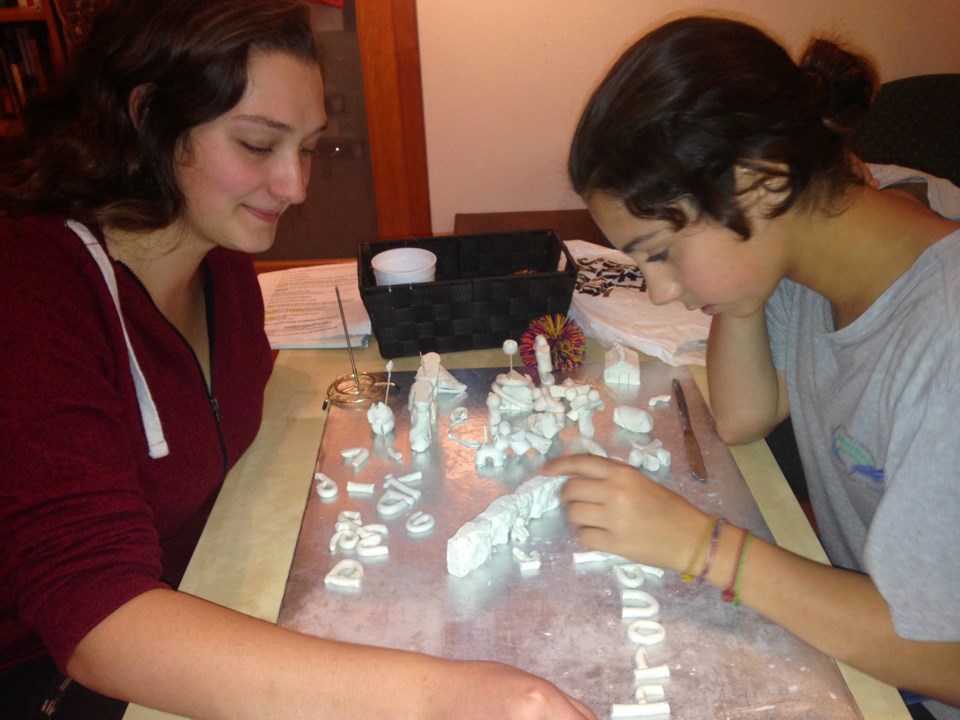Lacey O’Neill and Twyla Lotenberg have been getting together on a weekly basis lately to build plasticine sculptures of words like “on,” or “at,” or “through.”
“They’re trigger words,” explains Lacey. “They don’t really have a picture associated with them so when we’re reading, our brains get tripped up and lose track and we don’t understand what we’re reading anymore.”
Both Lacey (grade 12) and Twyla (grade 8) have been diagnosed with dyslexia, and the work they do together is just one tool they use to navigate a school-system based on a two-dimensional understanding of the world, instead of the three-dimensional perspective they prefer.
“I’ve been able to understand really complicated math stuff, concepts about time and space, since I was really little,” says Twyla. “Math as a whole is easy for me. Graphs, I love graphs!”
“But word problems are the worst!” Says Lacey, who says she aced all her math tests last year without even studying.
Dyslexia is one of the most common learning disabilities, and tends to make reading more difficult.
Both Lacey and Twyla laugh as they remember struggling through the easy readers in grade school while their peers were zipping through the more advanced ones.
“I think teachers found it really hard for me to be in their class,” says Lacey. “I also have ADD, which is really common for people with dyslexia, so they couldn’t really get me to focus on anything.”
Despite these memories, both Lacey and Twlya are excelling in school now. Lacey is at Rockridge and has been awarded honours with distinction for three years in a row now. She says her teachers don’t even know she’s dyslexic.
“If I hadn’t gotten help, I would’ve hated school,” she says. “English is not my favourite, and taking notes really doesn’t work for me but… I’m proof – no kid should have to suffer because she or he has dyslexia. It’s just entirely unnecessary.”
That’s what she wants people to be aware of this October, which is Dyslexia Awareness month, and also, that this particular brain wiring is not a developmental disorder.
“There is nothing wrong with us at all, we are just 2-d thinkers in a 3-d world,” she says.
And from a parent’s perspective, Twyla’s mom has more to add.
“Kids need to be given the support to understand that they can really achieve very high standards of success,” she says. “But if they limit themselves to trying to think and approach things the way everyone else is doing, they just won’t do as well. They need strategies, and its up to parents and teachers to help promote the strengths these kids do have.



